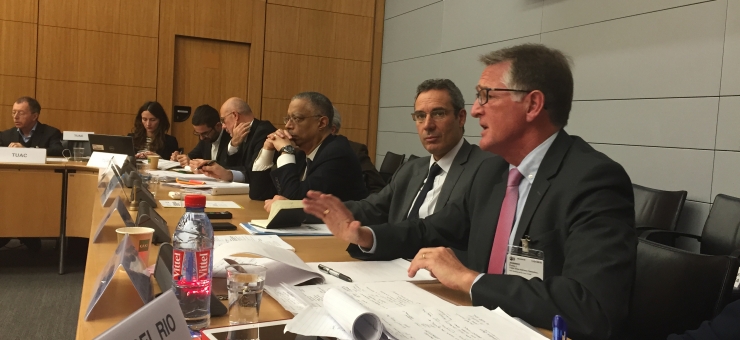News
Jennings: the digital revolution requires a just transition

UNI General Secretary Philip Jennings has called for a “just transition” in response to the digital revolution and encouraged trade unions to engage, confront and shape the debate on the future world of work in order to ensure that it improves the lives of all people.
Speaking ahead of the OECD Future of Work policy forum Jennings told unions and employers at a TUAC workshop in Paris that it would be dangerous to ignore the digital disruptions set in train by the so-called fourth industrial revolution.
“It is clear from the evidence presented from the World Economic Forum to ILO, OECD and think tanks around the world that this revolution will have a huge impact on working people over the next few decades and the threat of disruption should be considered on a par with the effects of climate change and economic inequality,” Jennings said.
They call it Industry 4.0 – a new world of work brought about by the rise of new forms of manufacturing and employment, the further automation of jobs and a new level of artificial intelligence which will have a profound impact on work and life as we know it.
“We are on the cusp of an era of intelligent machines which will raise new ethical questions about community, politics and values,” Jennings said. “We must put in place a proper regulatory and ethical framework within which such intelligent machines can function.”
Among the early manifestations of Industry 4.0 are on-demand work platforms whose approach to the world of work has failed to give unions confidence that they will bring an improvement in the economic and social conditions of working people. Such platforms are in denial about the employment relationships and responsibilities that they have, Jennings said.
“We have had decades of labour degradation that has manifested itself in mass unemployment, the weakening of labour market institutions and stagnant wages. The digital revolution seems set to make things worse unless we can guarantee a just transition for workers,” he said.
“The raw capitalism business model of these companies are no different to what we have experienced by big business in recent years - avoid regulation, avoid taxes and refuse to accept formal employment relations. We are seeing a repetition of the mistakes of the past by a new generation of business leaders.”
Unions are vital in tackling the issues raised by new forms of work and are part of the solution is to improve job quality, inclusion and skills, Jennings said. There is an urgent need to rebuild the bargaining power of unions, he added, without which economic inequality will persist.
With economies still reeling from the effects of the financial crisis and the subsequent 60 million job gap, there is concern that such technological disruption will push attention away from the fundamental weaknesses of an unreformed financial system.
“A poorly regulated financial sector and a technological revolution spells trouble for labour markets today and tomorrow,” Jennings said.
“With the Royal Bank of Scotland warning we are in for a cataclysmic year, we should not give a free pass to the finance sector as we tackle with the implications of the revolution.”
The OECD Future of Work Summit takes place in Paris on 14th January 2016.

